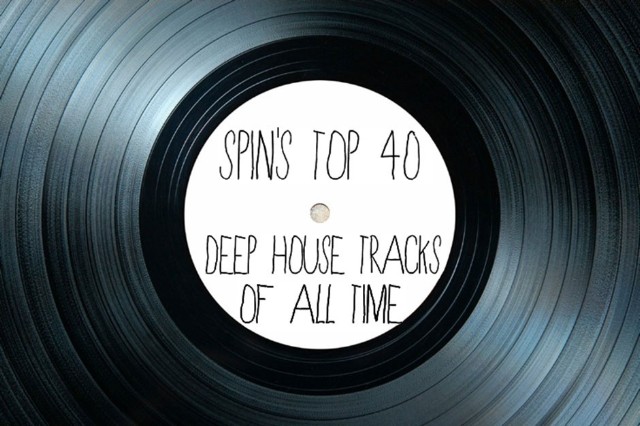Saint Etienne, “Only Love Can Break Your Heart (Masters at Work Dub)” (Warner Brothers, 1991)
For proof of house music’s abilities to unite all and sundry under the power of a groove, look no further than this fundamental, history-making remix. First, British indie-poppers Saint Etienne tackled a song off Neil Young’s 1970 album After the Gold Rush, of all things, turning his mewling lament into a shuffling breakbeat soundtrack to the waning of the so-called “Second Summer of Love.” Banged out in producer Ian Catt’s bedroom studio in two hours, the song got them signed to Heavenly and even made it into the U.K. pop charts, landing at No. 95; when reissued in 1991 as a double-A-side with “Filthy,” it made it all the way to No. 39 in the U.K., and it topped Billboard‘s Hot Dance Club Play rankings, thanks to a slow, dubby remix by Andrew Weatherall. (Oddly, it also hit No. 11 on Billboard‘s Modern Rock Chart.)That’s already a pretty tangled family tree, but Masters of Work went one better, grabbing a vocal snippet from “Your Life,” a 1984 song by the Downtown funk band Konk, and extending it into a long, stuttering loop. The chord changes, meanwhile, are dead ringers for the stabbing keys in Nikita Warren’s “I Need You,” an Italo-house tune released the same year, although it’s unclear whether one song influenced the other, or whether it’s just an instance of the trans-Atlantic synchronicity that’s so common in dance music. Whatever the case, MAW’s organ chords turn up the next year in Chez Damier’s “Can You Feel It,” one of the most essential tracks in the whole house canon. Neil Young’s Trans may have failed to ignite the techno-pop revolution he hoped for, but with this song, he set off a far more unpredictable — and productive — chain reaction. P.S.
Theo Parrish, “I Can Take It” (Sound Signature, 2001)

Also Read
The 30 Best Britney Spears Songs
Save for the jarring, cacophonous “Any Other Styles” (sourced entirely from kung-fu sound effects), virtually everything Theo Parrish puts his hand to is leagues deeper than anything else out there. He’s heavily influenced by jazz and disco, and his best productions have the heft and luster of worn Persian rugs, faded and frayed. For “I Can Take It,” Parrish had the Detroit singer Dwele reprise his vocals from Recloose’s “Can’t Take It,” released the previous year on Planet E; using a wordless vocal riff as the song’s elastic backbone, he sends those pained entreaties soaring in circles like lonely birds. The groove limps as though shackled, metal clanking with every stumbling thump. A bittersweet exorcism at 116 BPM, it’s as melancholic a meditation on freedom and its inverse as you’ll find anywhere in the American songbook. P.S.
Moodymann, “J.A.N.” (KDJ, 2001)
When it comes to hypnotic, minimalist soul, Detroit’s Moodymann (Kenny Dixon, Jr.) is in a class of his own. Only Theo Parrish has matched the profundity of his slow, inky, sample-heavy house productions. “J.A.N.,” released as a single-sided 12-inch, is exemplary of Moodymann’s fierce, sardonic wit: The title stands for “Just Another N*ggah”; the spoken-word voiceover is taken from one of the Electrifying Mojo’s on-air interviews with Prince. The Purple One’s answers have been excised, so that Mojo’s questions, cut up and spread out at great length — “What type of mood were you in when you recorded that album?” “It’s been said that you work when you’re on the road, you carry a studio around with you, you get up in the middle of the night, you get the idea for a tune, and you get up and go do it; some people have even called you the workaholic, uh… uh…” — come to seem like they’re in dialog with the music itself. You could count the song’s elements on one hand: Rhodes chords, shuffling drum track, a three-note bass line, and a slow flare of strings and chant. The mastery is in the way he weaves them together and teases them out, brooding and suspenseful. “What was it like growing up in Detroit?” asks Mojo; the only answer is a wordless howl, like a freight train approaching in slow motion. P.S.
Round Two, “New Day” (Main Street, 1995)
Berlin’s Moritz von Oswald and Mark Ernestus are known primarily for a career spent exploring the interface between techno — they were among Germany’s earliest musicians to strike up a dialog with Detroit — and dub reggae. With their Basic Channel project, they laid the groundwork for minimal techno; Chain Reaction pushed the same material into the realm of ambient-dub blowouts, and with Rhythm & Sound, they brought dub techno back to the source by enlisting reggae singers like Tikiman and Cornell Campbell over their pinging, analog-voodoo riddims.Between 1994 and 1999, though, the duo also dipped its toes into house music via a five-record series on their own Main Street label. As was their spotlight-shy wont, they adopted a new alias for each record: Round One, Round Two, etc. Round One’s “I’m Your Brother” must have come as a shock to anyone expecting the steely parsimony of “Enforcement” or “Phylyps Trak”: Here, instead, was real house music, complete with jazzy keys, A/B changes, and a gospel-inflected chorus, resulting in the blackest-sounding music to come out of Germany since Giorgio Moroder. (Meanwhile, Chez Damier and Ron Trent supplied “Chicago’s Twisted Mix” on the B-side. With Round Two’s “New Day,” though, they eased off the R&B and retreated to more familiar terrain — chalky synthesizers, a humming pedal tone, and Motor City mechano-soul spun like fiber-optic webbing. But they kept house music’s four-bar changes and glistening, syncopated chord stabs, and Andy Caine, a sometime backup singer for the likes of Yazz and Tears for Fears, coaxed extreme pathos out of the most reticent of grooves.The bulk of the lyrics amount to an invocation of the power of love in the face of adversity (“Makes me want to shout about it / Shout about it / Where did we go wrong, tell me / For the love that we had was so strong / Open your eyes and you will see / That this was meant to be / There ain’t nothin’ standin’ in our way / We got a new day”). But it’s the way the verse begins that gets you every time: “Feel like a 24-hour sleep.” It radiates exhaustion — physical, emotional, spiritual. These dogs are tired, dog.And yet somehow, somehow, the song keeps pushing forward, upward, toward light, toward transcendence. It’s the essence of spiritual house. P.S.
Crustation, “Flame (Mood II Swing Borderline Insanity Dub Mix)” (Jive, 1997)
Crustation were a short-lived trip-hop group with ties to Portishead and Massive Attack; their 1997 single “Flame” was a perfectly nice, totally innocuous, and mostly forgettable contribution to the drowsy downbeat catalog. The journeymen producers Mood II Swing put their characteristically light, funky touch on a club-friendly remix of the song, as they did hundreds of times during their run as New York’s most dependable remixers. But Mood II Swing also had a murkier, more abstracted side; you can hear it in productions like “Move Me,” “The Slippery Track,” and the eerie “Inhale,” which sounds like Gary Numan’s “Cars” being sucked through a Teflon wormhole. But they outdid themselves on the “Borderline Insanity Dub” of “Flame,” lacing a skipping, proto-U.K.-garage beat with hiccupping vocal loops and a lithe, shadowboxing bass line; the icing on the cake comes courtesy of a swirling fog of vocal harmonies that pans from speaker to speaker. Running out of phase with the beat, it lends a sense of tidal ebb-and-flow, throwing the time deliriously out of joint. The fact that Mood II Swing never produced anything else quite like it only makes this fluid, enveloping tune all the more irreplaceable. P.S.
Blaze, “Lovelee Dae” (Classic, 1997)
The number of remixes commissioned for a given track isn’t necessarily a barometer of its quality, but one look at the artists who have updated Blaze’s “Lovelee Dae” over the years does suggest how far-reaching its impact has been: Carl Craig, Freestyle Man, 20:20 Vision, Freaks, LoSoul, Roman Flügel’s Eight Miles High, Swag’s Chris Duckenfield, Isolée, Michael Mayer and Tobias Thomas, and, more recently, Joyce Muniz, Tanner Ross and Kilowatts, and Flashmob. First released on Derrick Carter and Luke Solomon’s Classic label, the track is somewhat uncharacteristic for Blaze, a New Jersey duo which got its start on Motown, and whose catalog typically leans towards the most florid extremes of East Coast garage and spiritual house.”Lovelee Dae,” in comparison, is laser-focused on a single pedal tone, and one swollen, never-ending note. Flecked with soft, squelchy keyboard riffs, a syncopated organ chord and dry drum groove carve a graceful arc from beginning to end, paving the way for a blissful vocal hook capable of coaxing actual tears of joy on the dance floor, no chemicals required. The simplicity of its structure masks its incredible timbral complexity, as effervescent and opalescent as Steve Reich (at the Zanzibar, in dub). It’s basically one long, extended dopamine rush, buffeting and then enveloping you like a heaven-sent gust of wind. P.S.
Joe Smooth Inc. featuring Anthony Thomas, “The Promised Land” (D.J. International, 1987)
Having been raised on Sylvester and Harold Melvin & the Blue Notes (thanks to original house DJs Frankie Knuckles and Ron Hardy), Chicago’s earliest house heads had already been schooled on disco’s strong but often-overlooked gospel roots, yet few managed to turn that connection into a fully fledged song, one you could strip of beats and still bring to church. Joe Smooth did it most regularly, and with this, his debut single, he did it most perfectly. Mod-punk soulboy Paul Weller took note: The Style Council’s super-faithful 1989 U.K.-hit remake adds nothing besides banging gospel piano. B.W.
Pepe Bradock, “Deep Burnt” (Kif, 1999)
https://youtube.com/watch?v=opvopULDhVI
“Path of Most Resistance,” the title of a 2009 track by Pepe Bradock, pretty well sums up the French producer’s approach to house music. Not all of his work is as difficult as “Rhapsody in Pain,” an unsettling jam stitched together out of cartoonish yelps and wails — it sounds, in fact, like a massacre on the Muppets’ soundstage — but all of it dances defiantly to the beat of his own decidedly off-kilter drummer, full of quavering samples and weird, lumpy funk. But Bradock’s music is also unusually lush, as we’ve already seen from his melodic makeover of Iz & Diz’s “Mouth,” and “Deep Burnt” stands out as the emotive pinnacle of his work (followed closely by “Life” and “Ghost” from the following year). He builds the beat out of the opening tambourine of Max Roach’s “Driva Man,” and he borrows the sweeping strings from the introduction to Freddie Hubbard’s misty-eyed “Little Sunflower”; the rest is all him, laying down sparkling keyboard counterpoints and drawing out Hubbard’s strings like outsized soap bubbles that go twisting and turning through the air. You’ll not find a clearer testament to the power of sampling as an expressive art form. P.S.
Chez N Trent, “Morning Factory” (Prescription, 1994)
There are plenty of songs in deep house that are more “musical,” more ambitious, more cleanly produced. But none of them makes a clearer statement of purpose than Chez Damier and Ron Trent’s “Morning Factory,” a track that settles in like a luminous fog and just hovers for nearly nine minutes, absorbing everything in its path. Inside the haze, anything goes: Dancers are free to follow innumerable rabbit holes opened up by the drums’ strange, triple-time delay patterns. The bass line feels almost physical, like something solid, like a tree waiting to be climbed, even though it’s gone as soon as it leaves its staccato footprint. Bleary chords smear across the upper registers and hi-hats seem to crumble to bits. The whole thing is a whirling choreography of disappearance, powered by the morning sun falling on closed eyelids and the stars spinning behind them. P.S.




